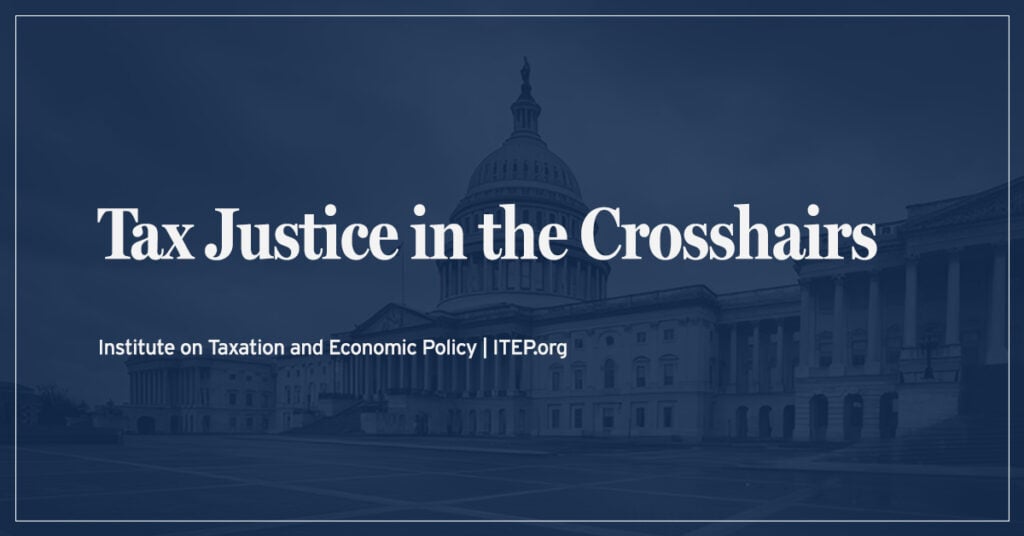On election day, voters across the country — in states red and blue and communities rural and urban — approved a wide range of state and local ballot measures on taxation and public investment. The success of these measures clearly shows that voters are willing to invest in public priorities that feel tangible and close to home.
Recent polling reveals distrust in major institutions including our education systems, the press, elections, and government more generally, but it seems that many voters nonetheless want to raise revenue to build stronger shared communities.
States Defend Revenue and Public Investments
Voters across the nation either defended or proactively increased taxes for housing, education, climate resiliency, parks, child care, and the arts.
- Over 60 percent of voters in Washington preserved a new tax on capital gains income that raised $786 million for child care programs, early education, and schools in 2023.
- Sixty-two percent of Washington voters also voted to retain the state’s cap-and-invest program that aims to reduce greenhouse gas emissions; to date, the program has raised $2.3 billion to fund clean energy, electric school buses, free public transit for youth, and conservation efforts.
- Sixty-four percent of voters in North Dakota defeated a measure that would have abolished property taxes and cost the state over $3.15 billion in lost revenue over the next two years, severely jeopardizing essential public services.
- Colorado, Kentucky, and Nebraska rejected proposals that would have diverted funding from public to private schools.
Preserving and Developing Affordable Housing
In addition to these defensive wins, many voters recognized that stable, affordable housing is vital.
- Rhode Island residents overwhelmingly approved a $120 million housing bond, the biggest in the state’s history, that is nearly double the previous housing bond passed by voters three years ago.
- Noteworthy housing initiatives passed at the local level through different vehicles including raising sales taxes (Los Angeles County and Santa Barbara, California; Lawrence, Kansas), extending the real estate transfer tax (Berkeley and Mountain View, California; Aspen, Colorado), raising lodging and hotel taxes (St. Louis, Missouri; La Plata County, Grand County, and Mt. Crusted Butte, Colorado) and boosting property tax (Ingham County, Michigan; Pitkin County, Colorado; Charlotte, North Carolina).
While this list is not exhaustive and some affordable housing measures failed, many voters clearly understand that housing investments are fundamental to increasing economic mobility and securing our futures.
Climate Resilience
State and local ballot measures related to climate resilience proved popular, demonstrating a common interest in cutting carbon emissions and improving energy security, especially as deadly wildfires and floods have intensified.
- Californians authorized $10 billion in bonds for wildfire prevention and clean water, the largest climate resilience investment in the state’s history.
- Rhode Islanders voted for a $53 million environmental bond to clean toxic former industrial sites, strengthen offshore wind infrastructure, manage forest and wildfire habitats, and advance other projects.
- Louisianans passed a constitutional amendment directing offshore wind revenue towards coastal restoration and protection initiatives.
- Minnesota voters chose to continue allocating at least 40 percent of state lottery revenue to an environment and natural resources trust fund until 2050.
- In Colorado, where a portion of funds from sports betting are used for water projects, residents approved a measure to increase the amount used for water storage, drought planning, and other related projects.
- Voters in Suffolk County, New York approved a small new sales tax to protect drinking water and waterways.
- Honolulu voters approved a measure that will deposit a small portion of the city’s property tax revenue in a Climate Resiliency Fund.
Education and Afterschool Funding
As mentioned earlier, voters in Colorado, Kentucky, and Nebraska voted to safeguard public K-12 education.
- Coloradans rejected an effort to enshrine school choice in the state constitution, a proposal that sounds harmless but would have created a private school voucher system that jeopardizes public education funding long-term.
- Kentucky voters defeated Amendment 2, which would have allowed legislators to direct public funds to private schools.
- Nebraskans partially repealed a law that allocated $10 million of public taxpayer funds to private school tuition.
Other state school funding measures passed as well.
- Missouri’s Amendment 2 narrowly passed; the measure legalizes sports betting and uses the revenue for public schools, higher education, and gambling prevention.
- Colorado passed a tax on firearms, and the revenue will be used for school safety and mental health support.
- California authorized $10 billion in bonds to repair K-12 and community college buildings.
The results of local school funding measures across the country were mixed. Voters generally supported levies for building maintenance, upgrades, and technology, but less so for general operating levies.
- Wisconsin’s schools fared well as the vast majority of school districts had their ballot measures approved. Voters approved 169 referenda, breaking their old record set in 2018, and authorizing $4.4 billion in new funding.
- In Minnesota, less than half of the 64 ballot questions related to school funding passed.
- In Oregon, voters mostly supported renewing existing school taxes but were hesitant to approve new requests.
- Results were equally mixed in Colorado and Ohio where approximately half the school measures passed, a large drop from prior years.
Local tax increases for child care and early education seem to be on the rise.
- Voters in Travis County, Texas approved a 2.5-cent property tax rate increase that is expected to raise $76 million for early childhood education, after-school care, and summer programming, as well as training programs for child care staff.
- Sonoma County, California approved a quarter-cent sales tax that will generate about $30 million for early childhood education and early childhood health.
- Several local Colorado ballot measures also raised lodging taxes for housing and child care.
- St. Paul, Minnesota residents rejected a child care tax levy but the vote seems to be related to the proposal’s unrealistic financial goals rather than an ideological rejection of child care taxes.
Transportation Investment
Voters unequivocally supported numerous transportation ballot measures nationwide. According to the American Road & Transportation Builders Association, voters approved 77 percent of 370 state and local ballot initiatives for roads, bridges, trails, and rails. These measures are expected to raise or renew $41.4 billion in funding.
- Nashville approved a hallmark $3.1 billion transportation plan that will improve the city’s sidewalks, bus system, traffic signals, and transit routes.
- Seattle passed a substantial $1.55 billion transportation levy to fund sidewalks, bike lanes, and other infrastructure.
- Notable investments passed in Denver, Colorado, Maricopa County, Arizona, and Columbus, Ohio, among many other localities.
About half of the total new revenue is dedicated to public transit. The takeaway is clear – people want and are willing to pay for better transportation infrastructure. That’s an important takeaway because it’s foundational to job access, economic stability, and overall quality of life.
For those committed to a more prosperous shared future, last week’s state and local wins helped pave next steps. Voters understand that their collective futures rely on meaningful investment in education, housing, health care, child care, transit, and climate resilience. We just need to better connect the dots between abstract tax policy changes and people’s material well-being. Even smaller state and local wins can help renew faith in our institutions and build momentum for greater, long-term national investments.
Please note that the ballot measures and investments mentioned above are not exhaustive. Let us know about other exciting developments in your community.





